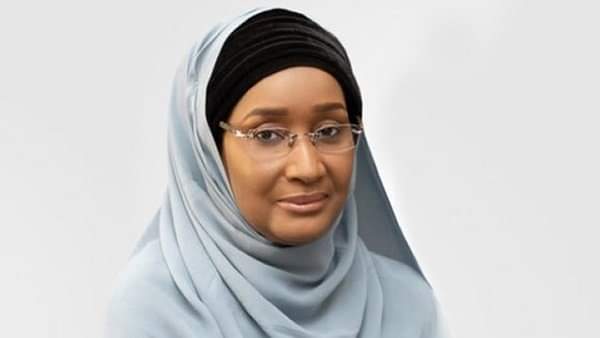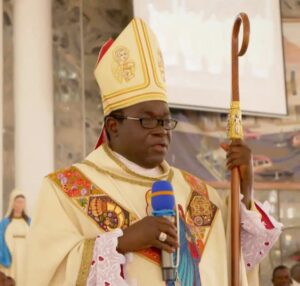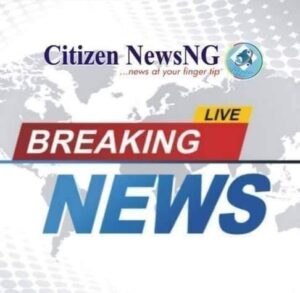
The Federal Government has saved as well as created 2.1 million jobs with the implementation of its Economic Sustainability Plan (ESP).
It said over 4,000 kilometres of its and rural roads have reached at least 30 per cent completion level.
These were among the highlights from yesterday’s meeting of the Economic Sustainability Committee, presided over by Vice-President Yemi Osinbajo at the Presidential Villa in Abuja.
A statement by the Senior Special Assistant to the President on Media and Publicity, Office of the Vice-President, Mr. Laolu Akande, said the achievements followed the release of about N288 billion out of the N500 billion earmarked for COVID-19 intervention programmes under the ESP.
Affirming the considerable progress he government had recorded, Prof. Osinbajo acknowledged the President’s resolve to always do what is right for Nigerians.
He urged members of the committee “to bear in mind that the vast majority of our people are not allowed to suffer”.
Ministers and heads of agencies executing the Buhari administration’s ESP reported significant improvement in the implementation of the programme as the government ramps up funding for projects across various sectors to impact more Nigerians.
Already, more than 50 per cent of the appropriated sum for the ESP has been released.
Under the Survival Fund Scheme, 1.3 million jobs have been saved and another 774,000 jobs created through the Public Works Programme.
This is besides the 26,021 jobs created from construction and rehabilitation works, the statement said.
Other highlights include the release of 100 per cent (that is, N5 billion) appropriation for the COVID-19 Aviation intervention; 50 per cent funding (N26 billion) for the Public Works scheme hiring 774,000 persons across the country, among others.
Commenting on the reports presented by ESC members at the meeting, Osinbajo said: “I think that it will be fair to say that on account of the very good work that you all have done, we were able to get out of recession much faster than anyone would have imagined, although only marginally.”
Urging ministers and heads of agencies implementing key programmes of the government not to rest on their oars, the Vice-President said: “It is important for us to continually bear in mind that we really have a duty to ensure that the vast majority of our people are not allowed to suffer. So, I feel we should be thinking more about the next thing that we need to do.”
In digital skills support for youth and women, anchored by the Federal Ministry of Communications and Digital Economy, the Minister of State for Budget and National Planning, Mr. Clem Agba, reported that N1.5 billion, which is 50 per cent of the amount appropriated for the scheme primarily targeted for job creation, had been released to the ministry.
He added that priority programmes for the intervention is the training of 600 youths (100 from each of the six geo-political zones) on VSAT technologies.
The trainees would also be supported with laptops and stipends.
The minister reported that the Federal Ministry of Women Affairs had got N625 million (representing 50 per cent of appropriated funds) to implement an empowerment scheme for women through capacity building in innovation and vocational training.
For the Federal Ministry of Youths and Sports, he said N2.6 billion, representing 50 per cent appropriation, was released for implementation of youth employability improvement scheme through various initiatives.
“Capacity building in energy efficiency and renewable energy technologies, positioning Nigerian youths for digital remote jobs, equipping of youths digital/robotic training centres across the six geo-political zones,” Agba said.
Another key highlight of the progress report was the release of N1.25 billion (50 per cent) to the National Commission for Refugees, Migrants and Internally Displaced Persons for implementation of programmes for vulnerable and displaced persons.
The government also reported the construction of 400 housing units for persons of concern in Zamfara, Yobe, Katsina, and Edo states; eight PHCs and others, empowerment of 900 persons of concern with skills, starter packs and startup capital.
The minister also reported that the Federal Ministry of Humanitarian Affairs, Disaster Management and Social Development got N2.45 billion, representing 7.5 per cent of N32.45 billion for cash transfer to the poor and vulnerable, while the balance of N30 billion was being processed.
In strengthening the health system, the minister said 52 Federal Tertiary Health (FTHs) institutions got N23.57 billion (N853 million each) for the establishment of ICUs, molecular laboratories and isolation centres.
The progress report presented by the minister showed that 38 FTHs implementation was at an average of 47 per cent completion stage with procurement process completed and equipment supply in progress.
Expected outcomes from the interventions in the sector include 520 fully equipped ICU beds available in FTHs; 52 isolation wards with an aggregate of 1,040 beds and associated patient monitoring equipment and 52 molecular laboratories with the capacity to carry out a minimum of 150 PCR test a day.
Members of the ESC at the meeting included Mrs. Zainab Ahmed (Finance, Budget and National Planning); Otunba Niyi Adebayo (Trade and Investment), Alhaji Mohammed Nanono (Agriculture and Rural Development), Mr. Babatunde Fashola (Works and Housing), Dr. Chris Ngige (Labour and Employment), Ambassador Mariam Katagum (Minister of State for Industry, Trade and Investment), Mr. Clment Agba( Minister of State for Budget and National Planning), Hajiya Sadiya Umar Farouk (Humanitarian Affairs, Disaster Management and Social Development) and Mr. Mele Kyari (Group Managing Director of the Nigerian National Petroleum Corporation, NNPC).












